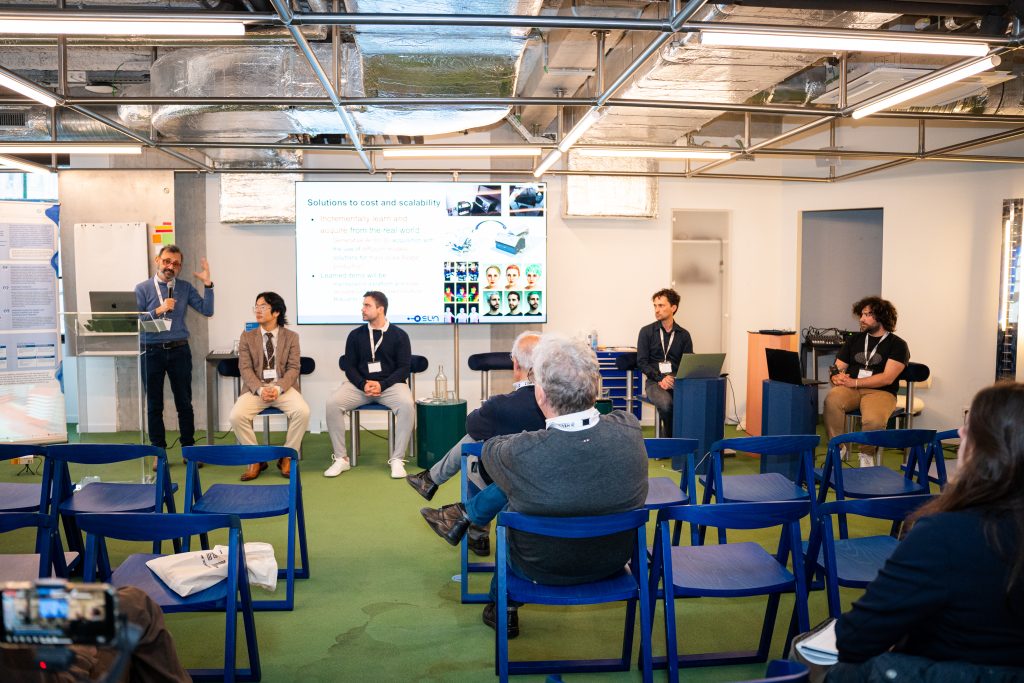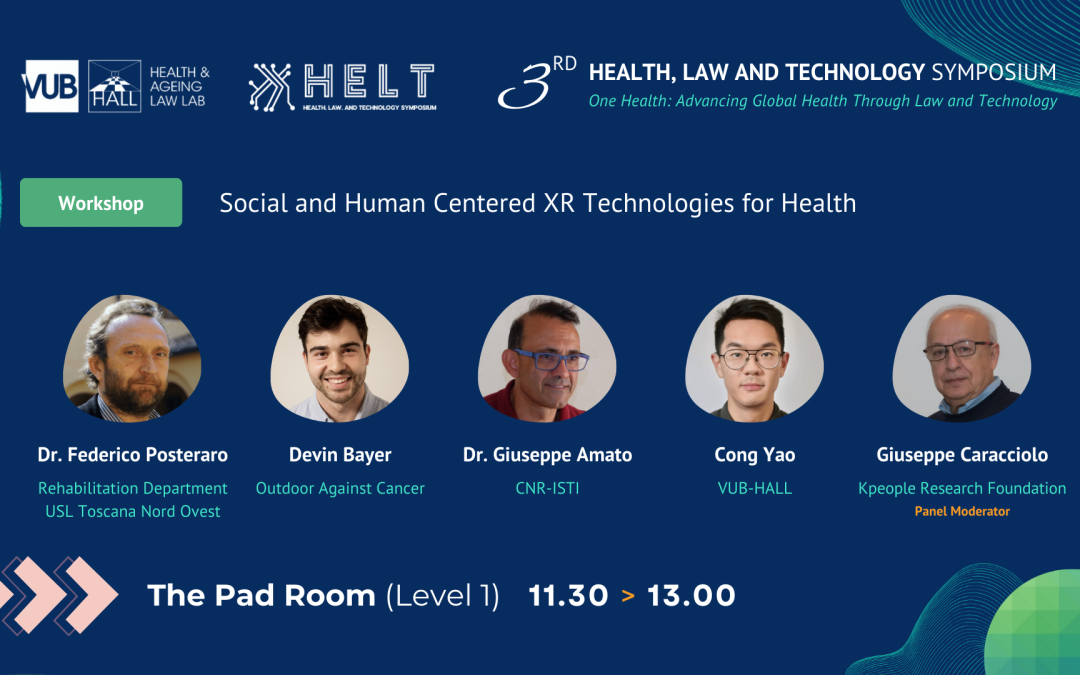The EU Horizon SUN Project (Social and Human-Centered XR) took center stage at the Health, Law, and Technology (HELT) Symposium on April 24th, hosting a groundbreaking workshop titled “Social and Human-Centered XR Technologies for One-Health.” The session brought together technologists, medical professionals, legal experts, and patient advocates to explore how Extended Reality (XR) can transform rehabilitation and communication for individuals with mobility and verbal impairments—while addressing pressing ethical, legal, and inclusivity challenges.
Workshop Highlights: Bridging Technology and Humanity
The SUN Project’s workshop showcased cutting-edge XR innovations designed to seamlessly merge physical and virtual environments, emphasizing patient dignity and autonomy. Key themes included:
1. Breakthrough XR Applications in Healthcare
- Demos & Case Studies: Attendees experienced live demonstrations of XR rehab tools, including haptic feedback interfaces (Daniele Leonardis, SSSA) and assistive devices for upper-limb disabilities (Vincent Mendez, EPFL).
- Patient Voices: Devin Bayer (OAC) highlighted real-world benefits and challenges, sharing testimonials from users of XR rehabilitation platforms.
2. Policy and Ethics at the Forefront
- Regulatory Hurdles: Cong Yao (VUB) sparked debate on classifying XR tools under the EU Medical Device Regulation—asking whether current frameworks suffice for immersive tech.
- Privacy & Equity: Panelists dissected dilemmas like data security, informed consent, and accessibility gaps for vulnerable populations.
3. Multidisciplinary Collaboration
The discussion underscored the need for ongoing dialogue between engineers, clinicians, and policymakers to align XR solutions with medical standards and patient rights. Giuseppe Amato (CNR) opened the session with an overview of SUN’s mission, while Federico Posteraro (ASL-NO) presented validation pilots proving XR’s real-world viability.
Critical Questions Raised
The workshop’s interactive segment tackled pressing questions, such as:
- How can XR tools be tailored for diverse patient needs (e.g., cognitive vs. motor rehabilitation)?
- What ethical guardrails are needed to prevent digital dependency or exclusion?
- Which policy reforms could accelerate safe XR adoption in healthcare?
What’s Next for SUN?
The HELT Symposium served as a springboard for SUN’s next phase: scaling pilot programs, refining ethical guidelines, and strengthening partnerships with patient organizations. As SUN advances, the project remains committed to its core principle: “XR must serve people—not just technology.”


